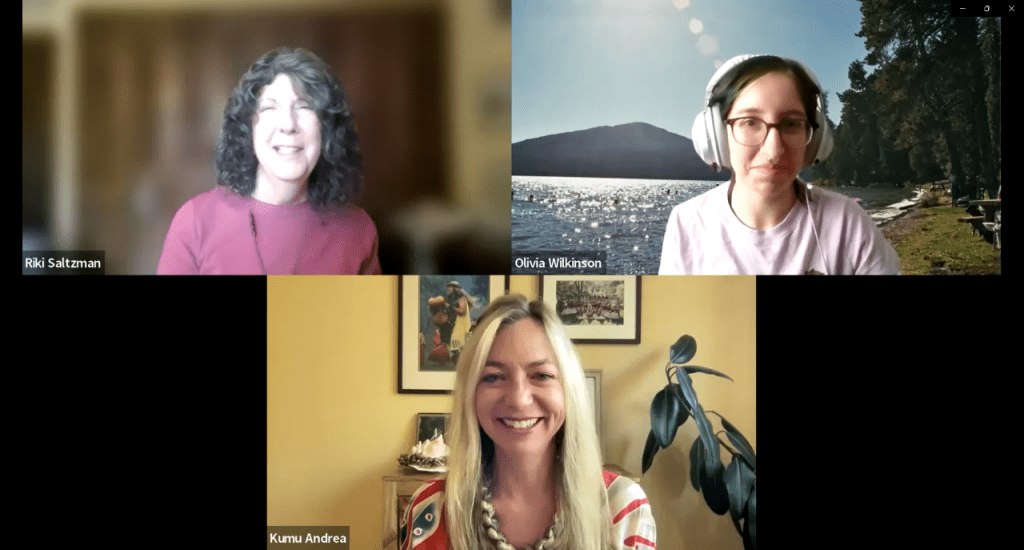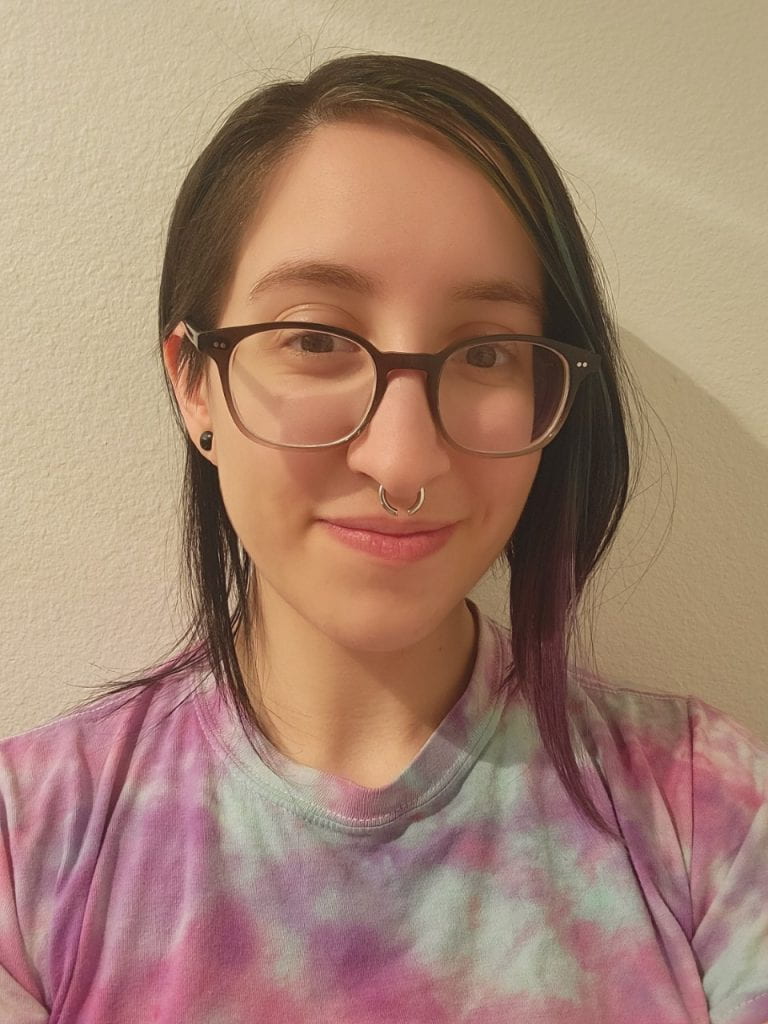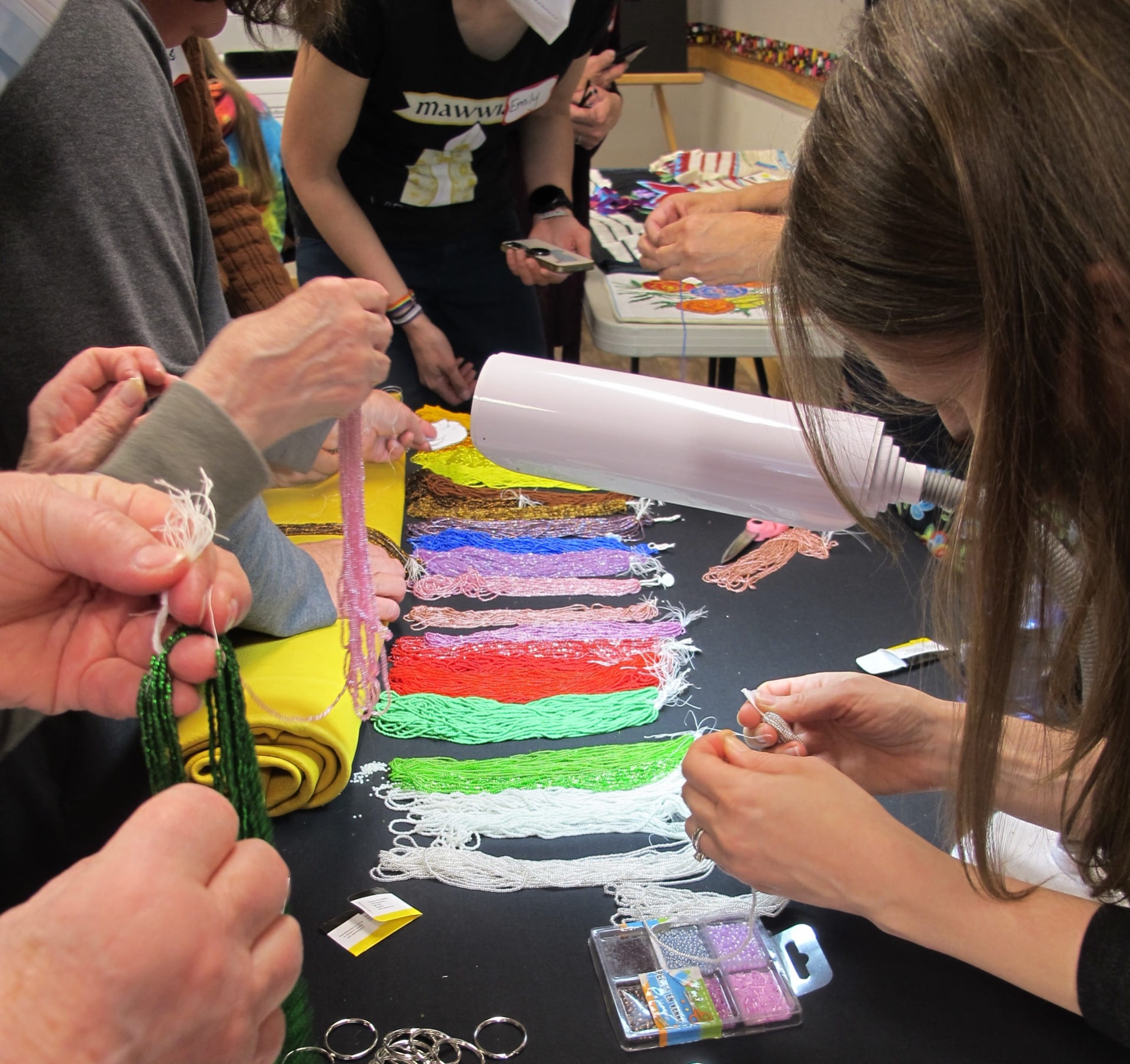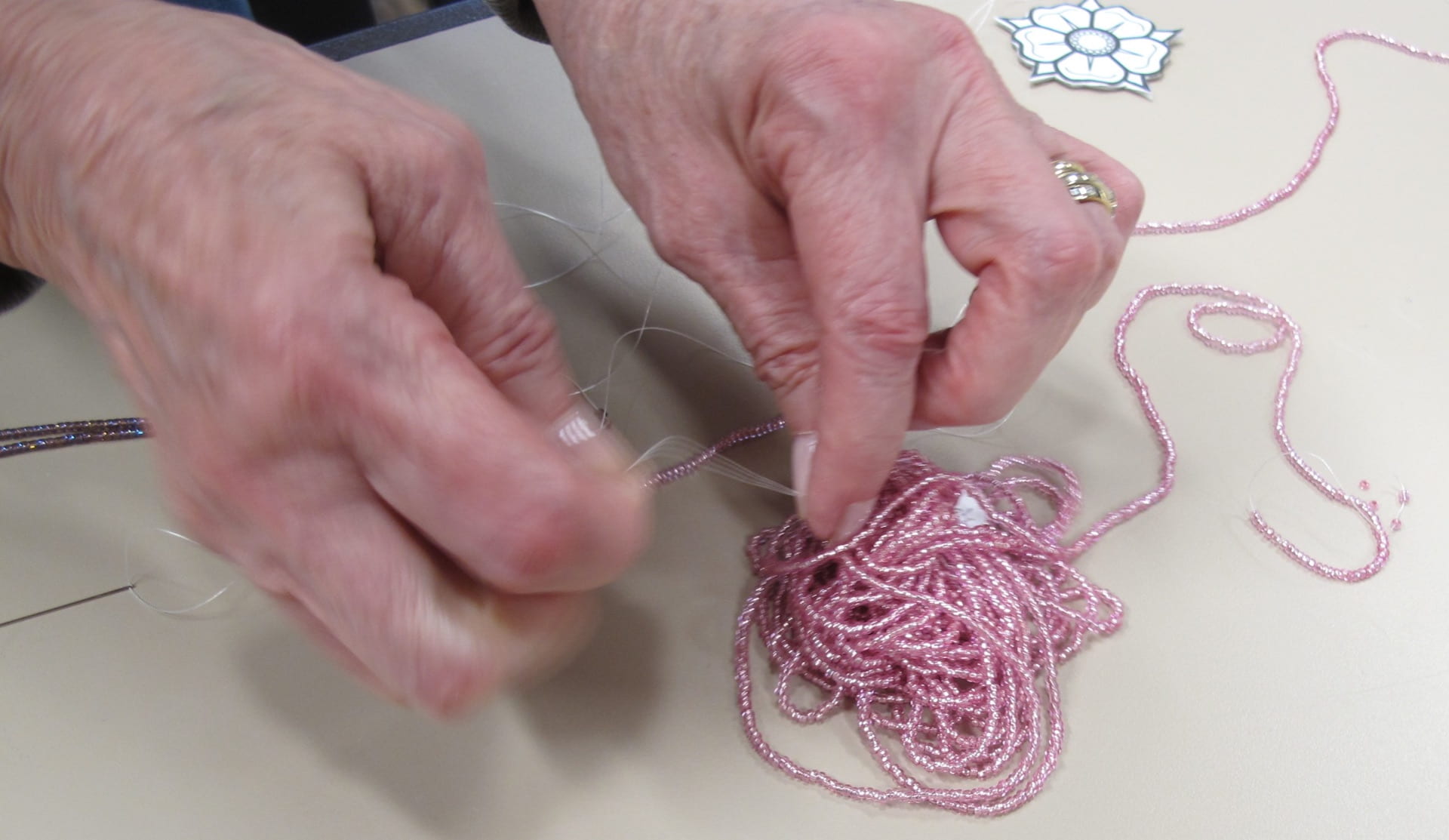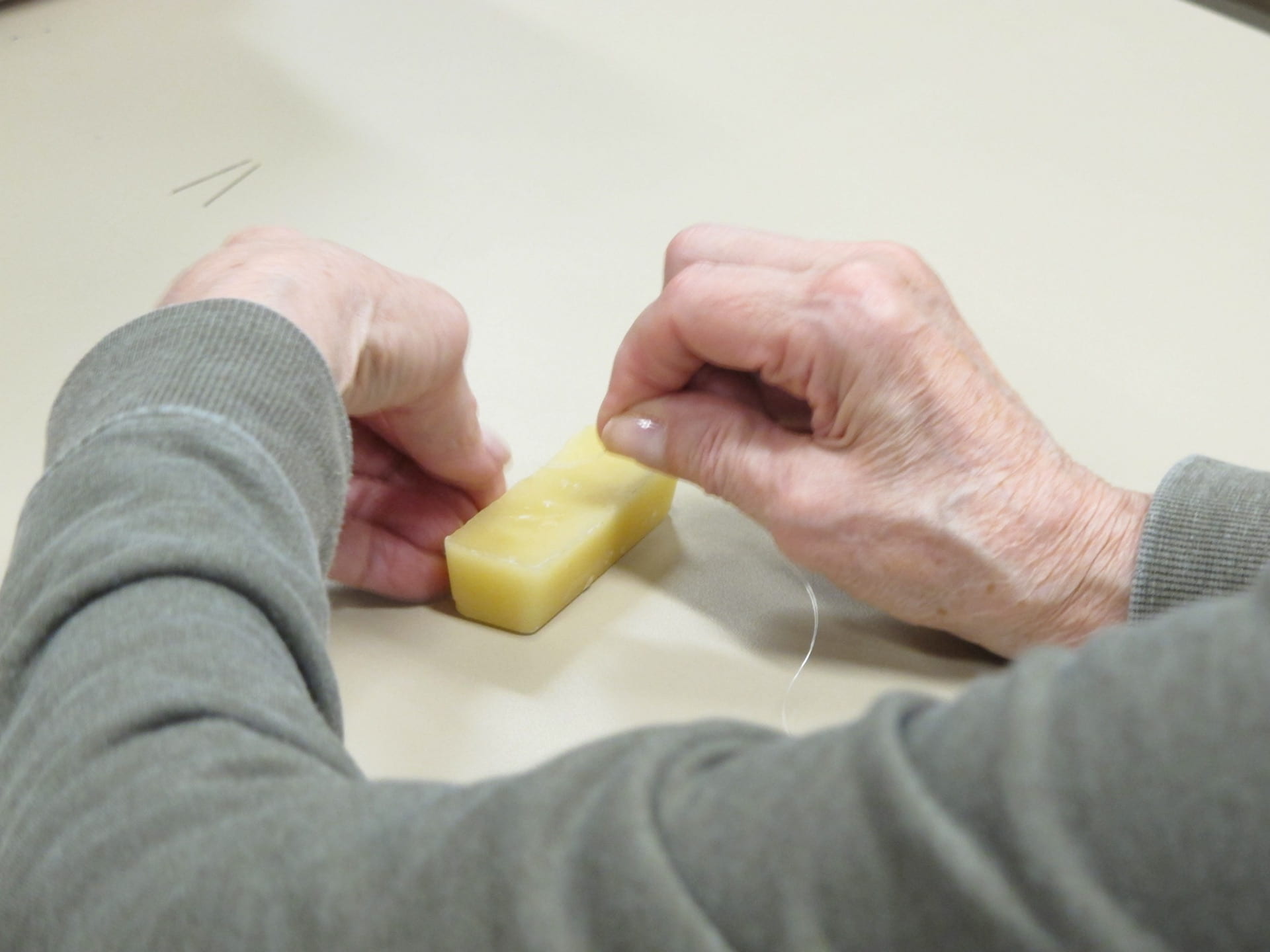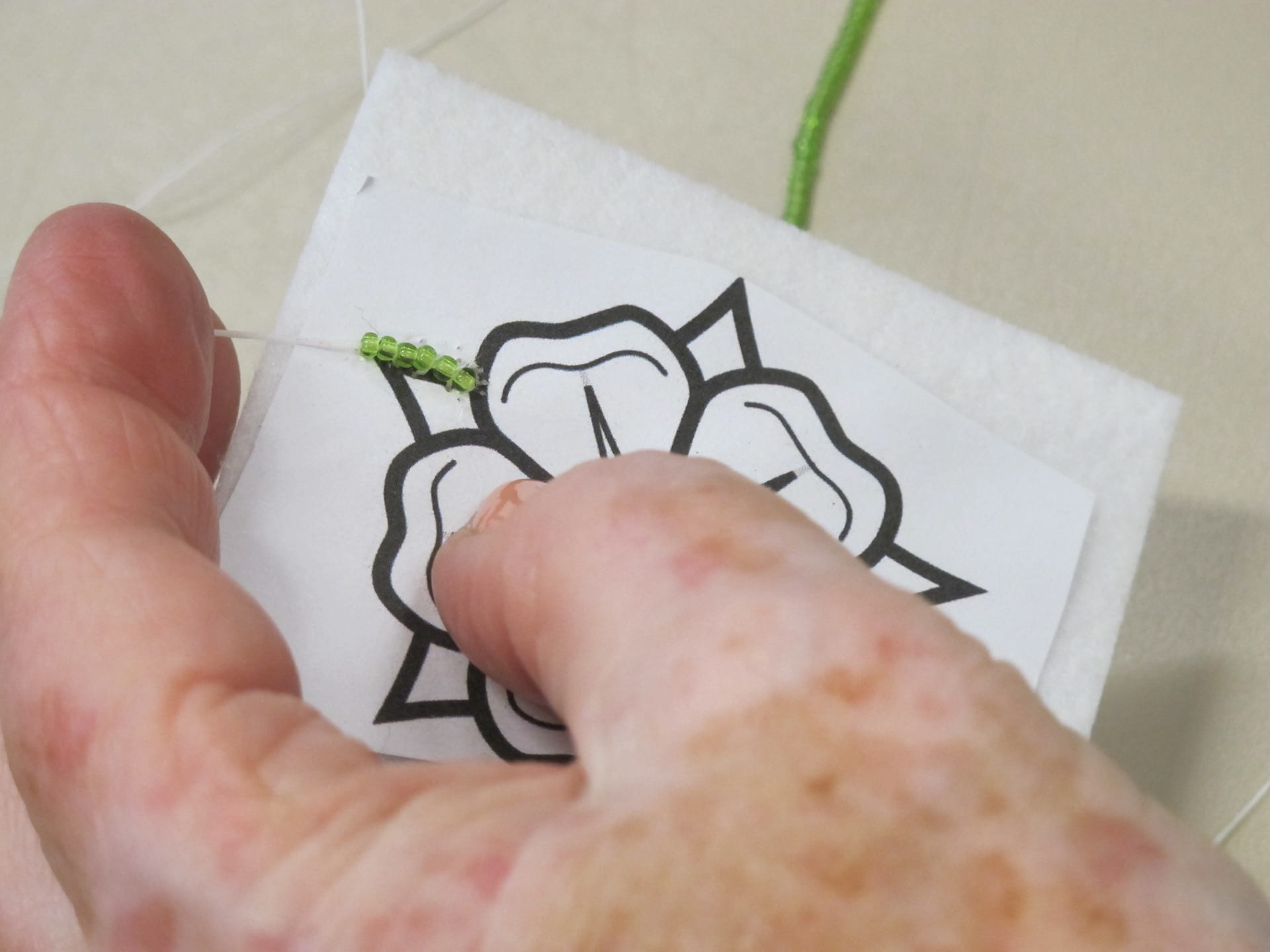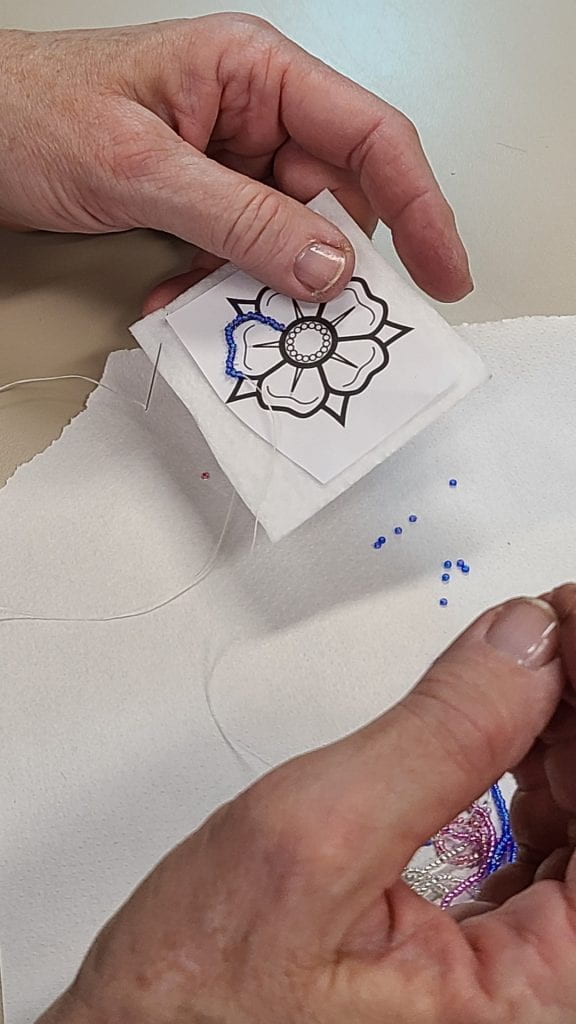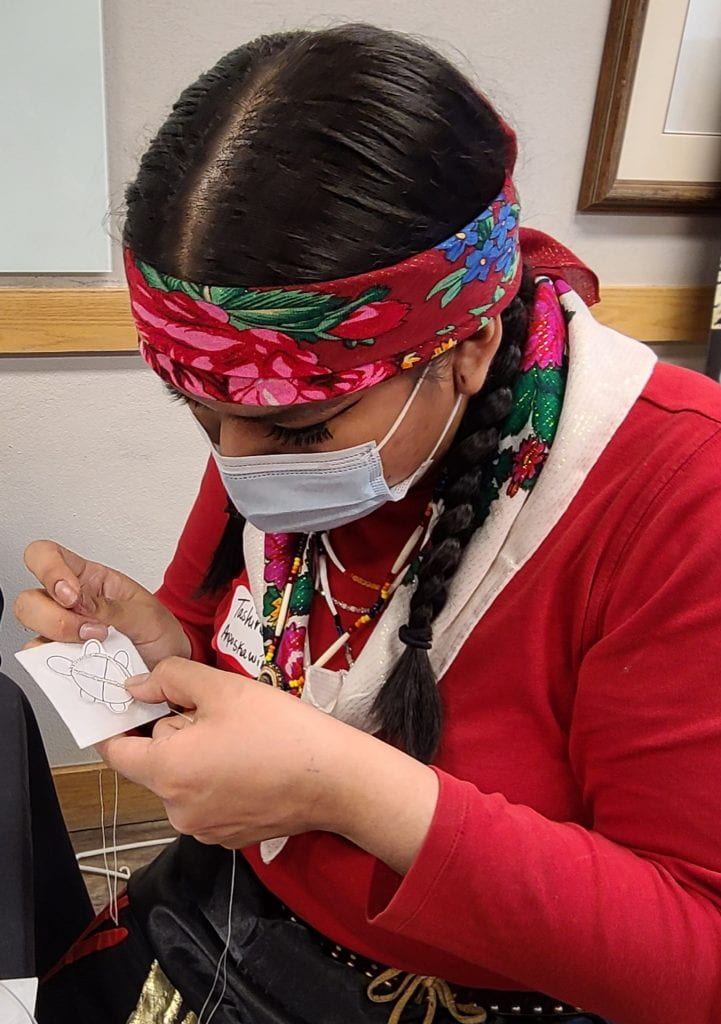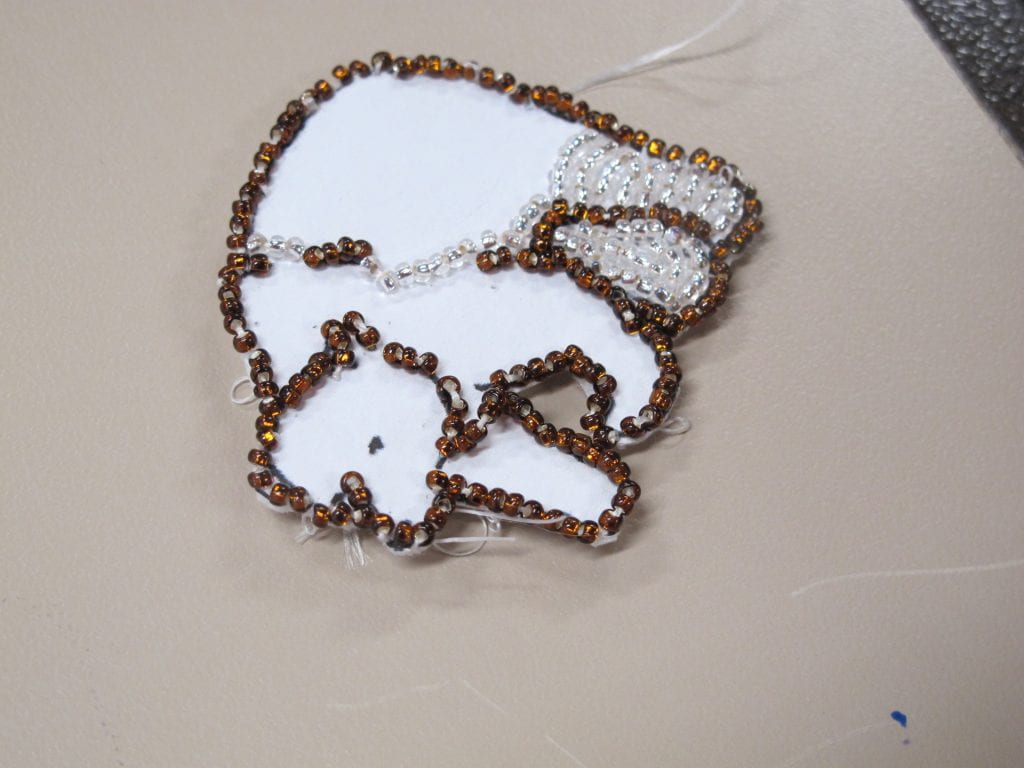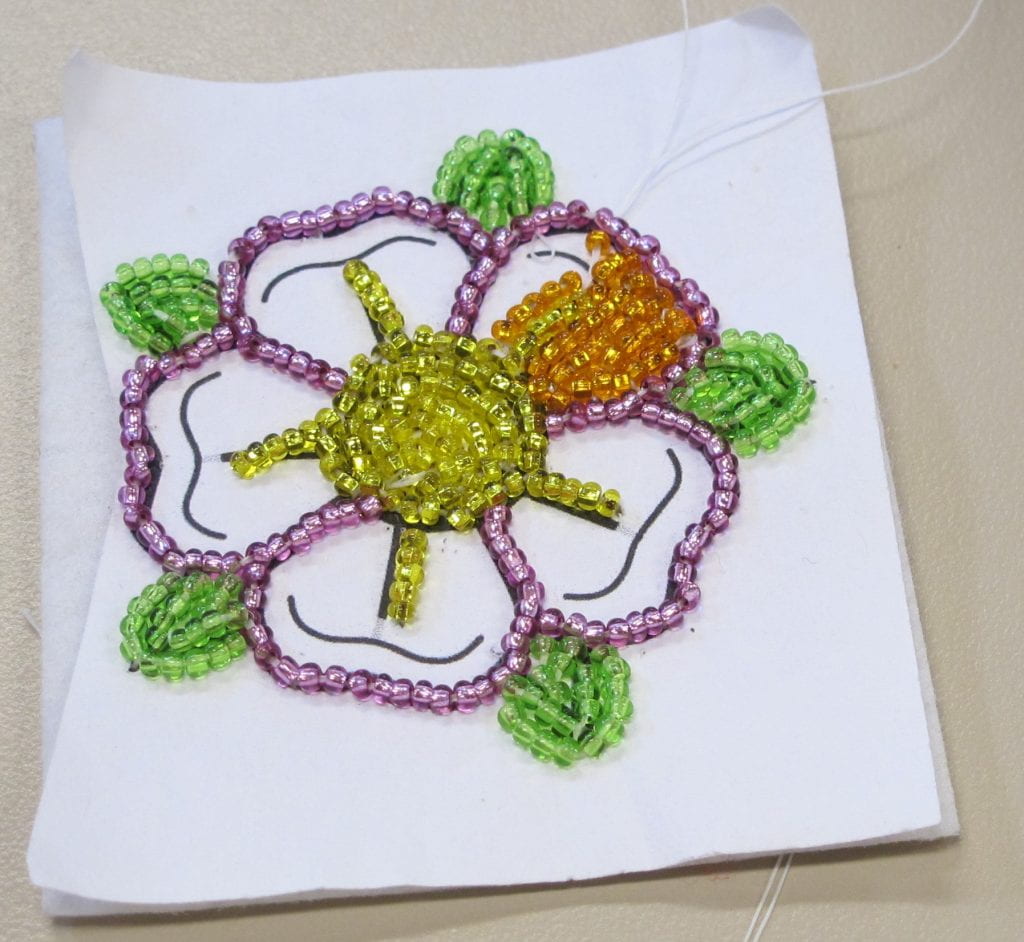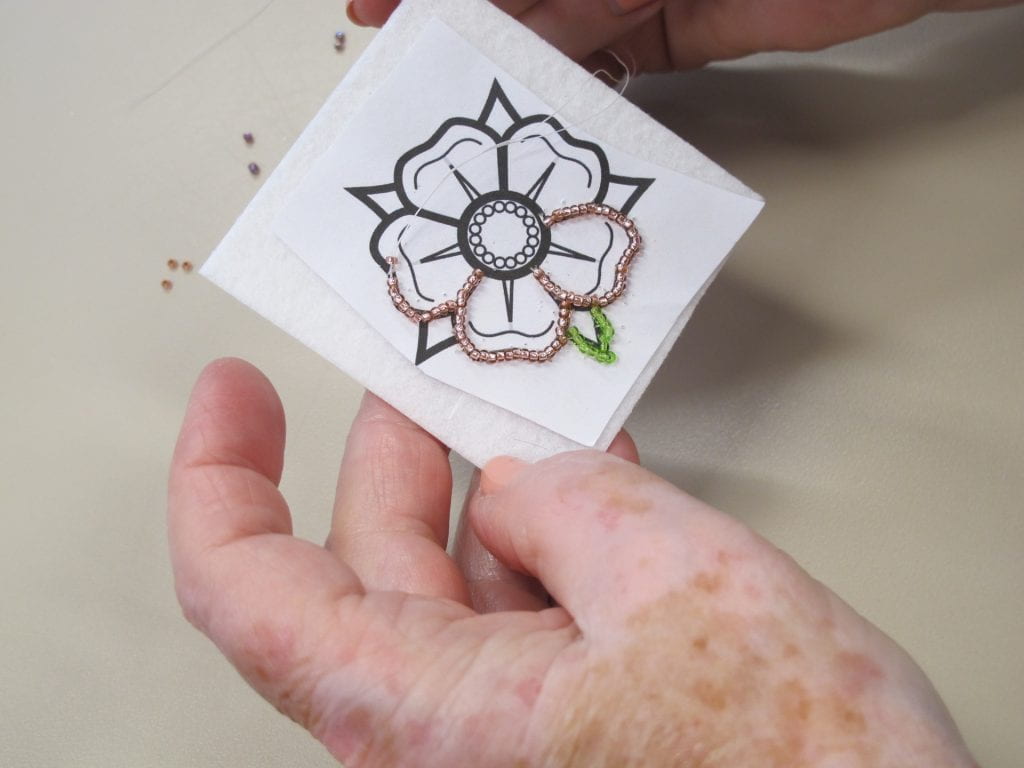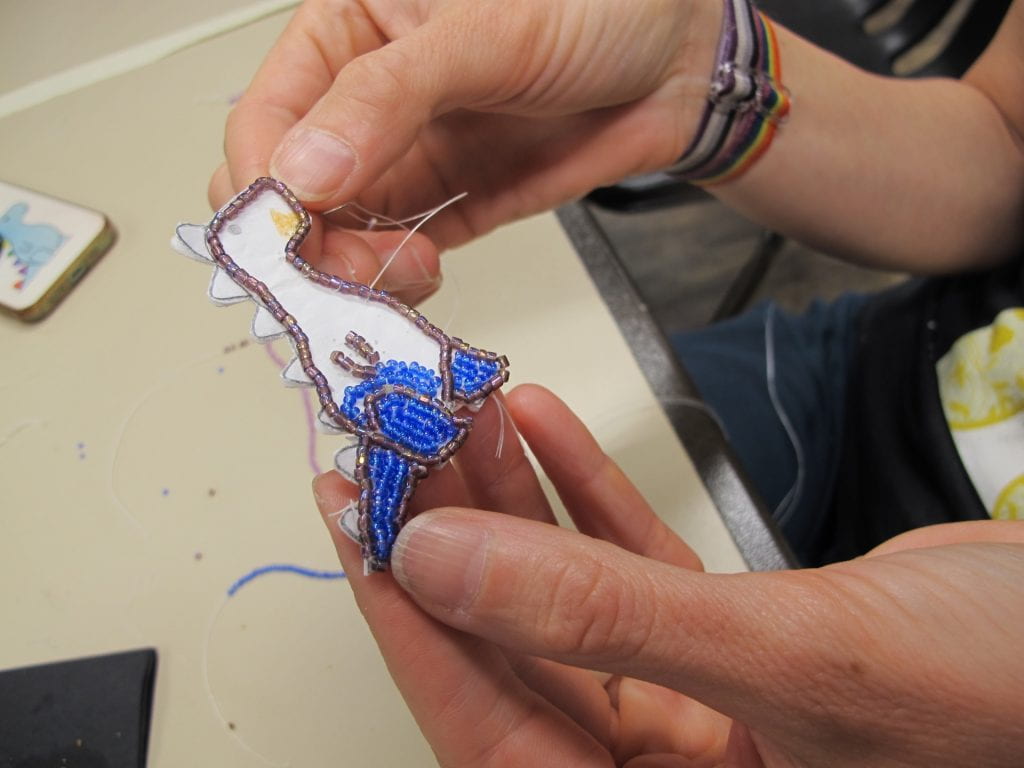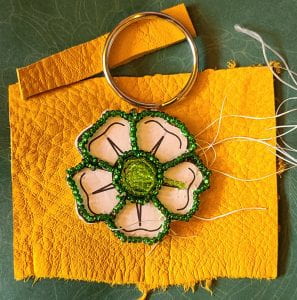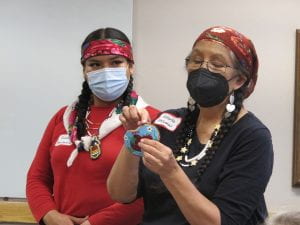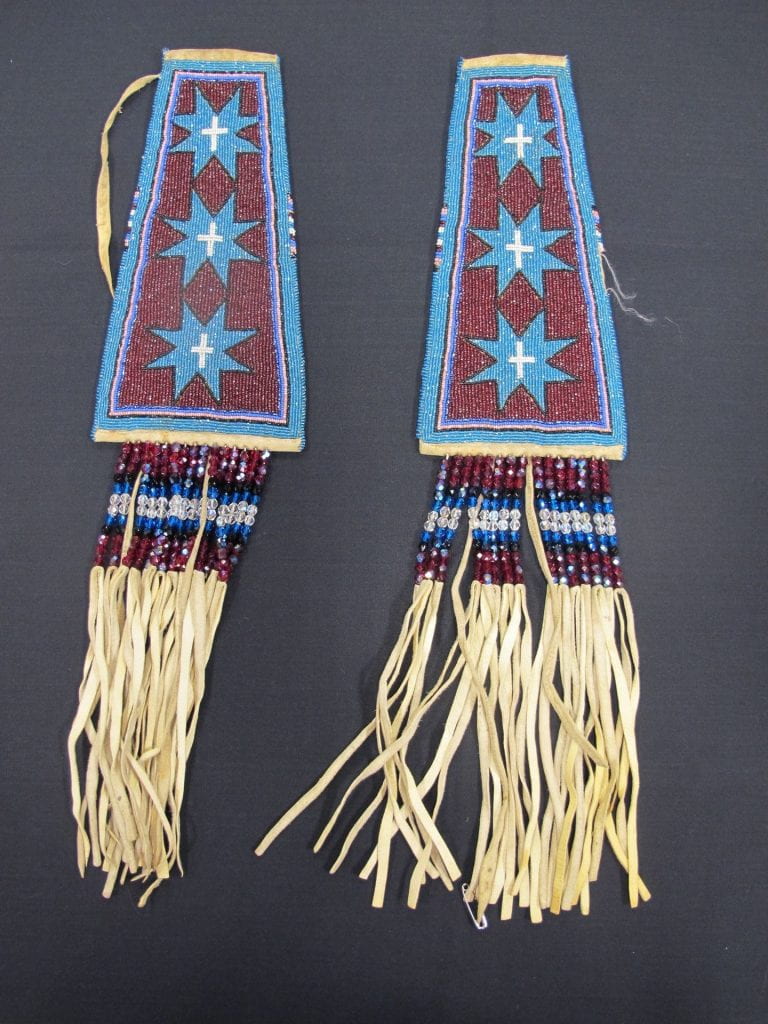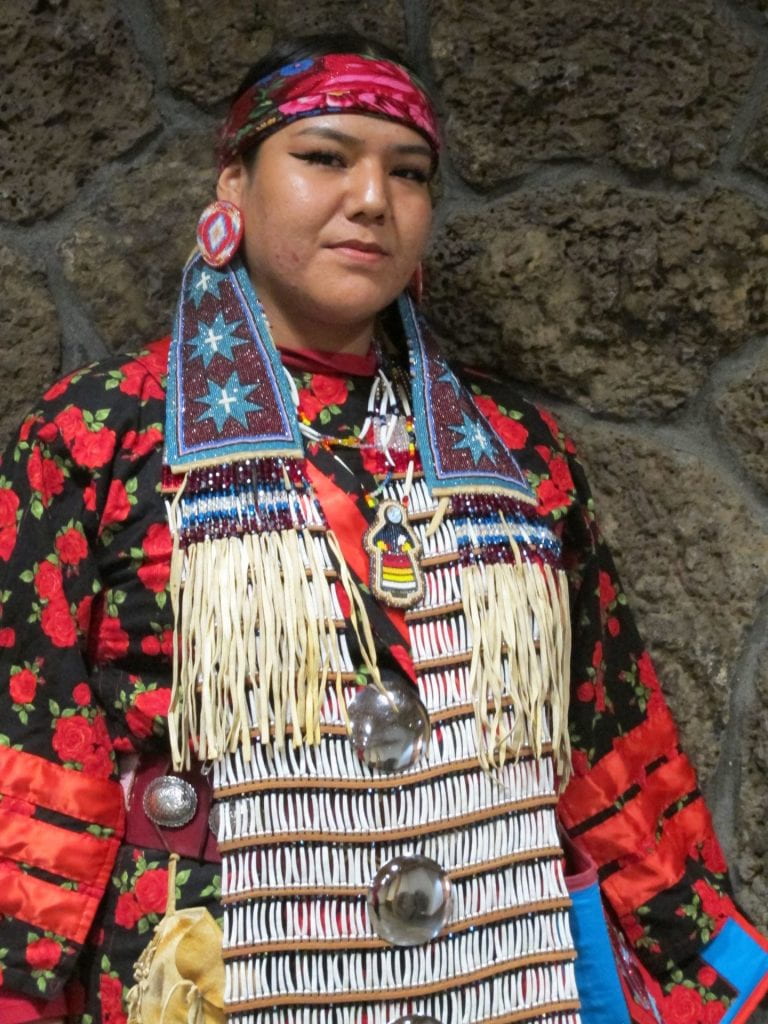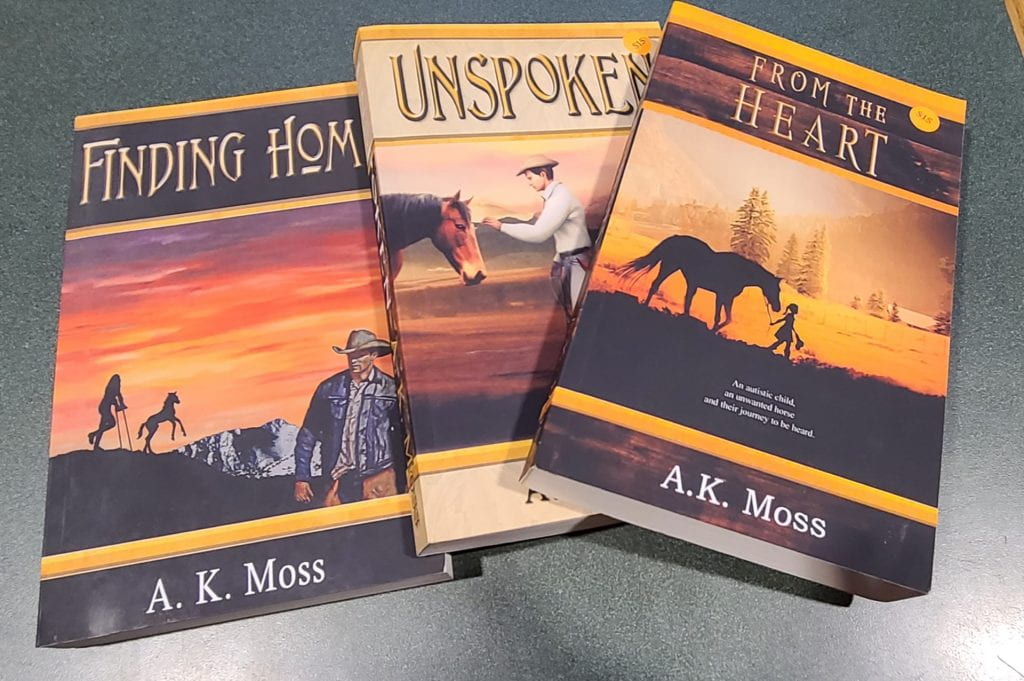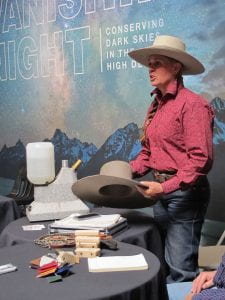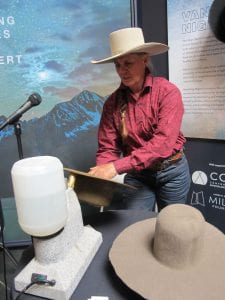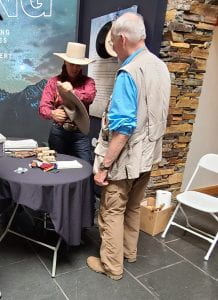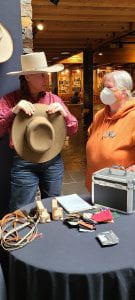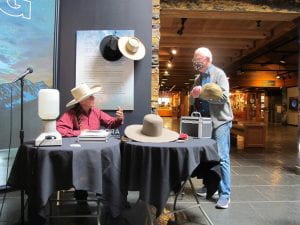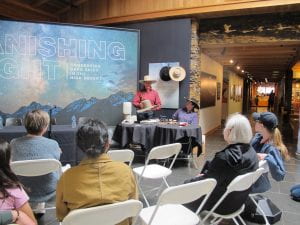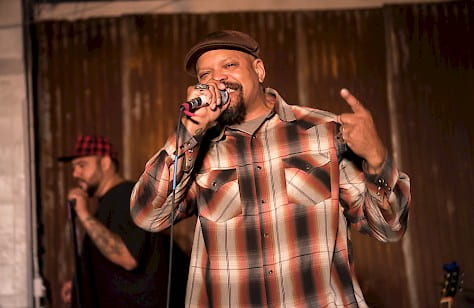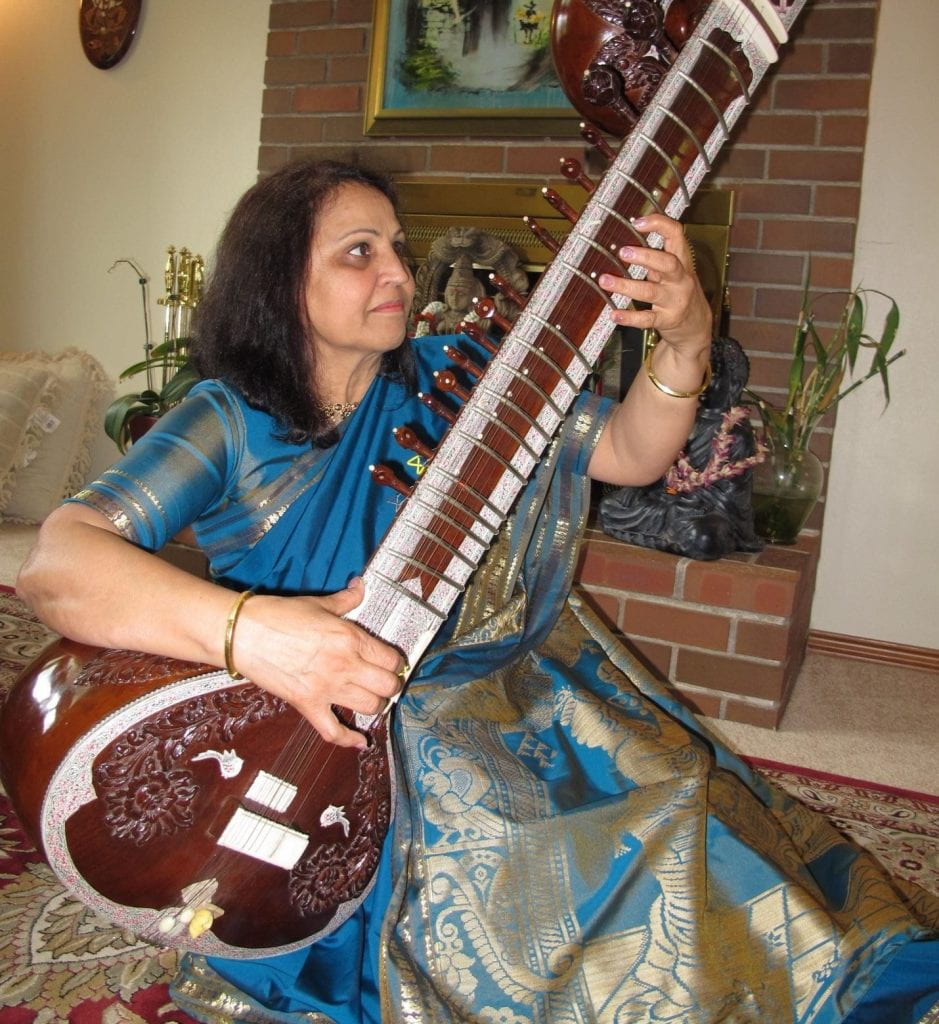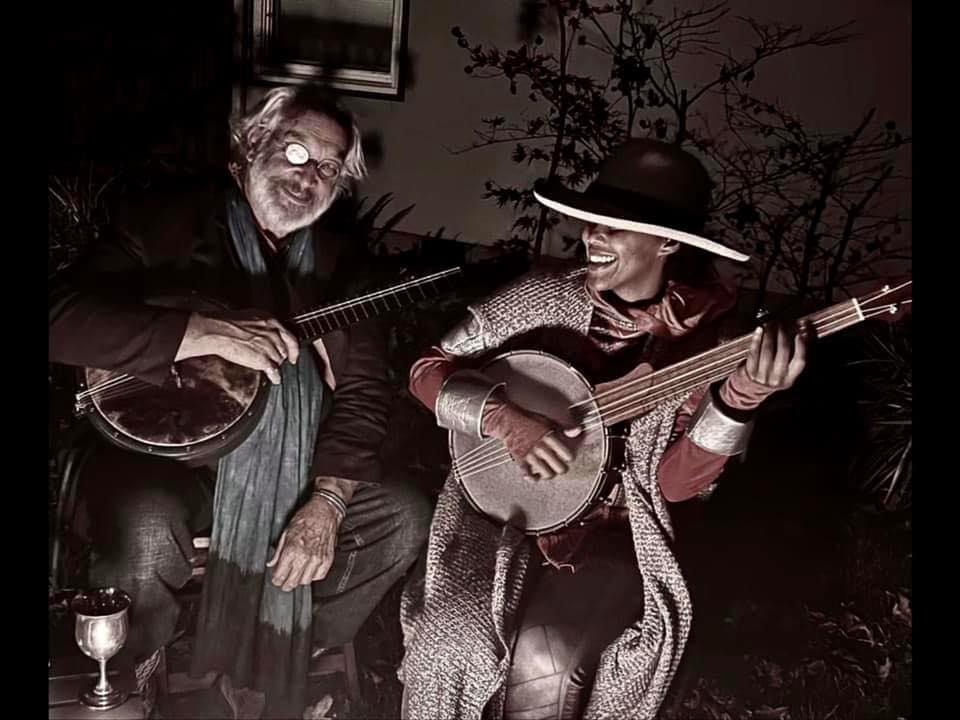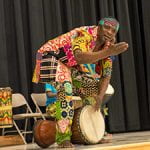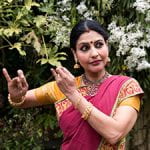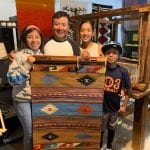by Riki Saltzman, Folklorist, High Desert Museum/Folklore Specialist, Oregon Folklife Network
During the weekend of May 14-15, 2022, the High Desert Museum featured three programs with culture keepers from the Confederated Tribes of Warm Springs, Lake County, and Grant County. The culmination of nearly two years of documenting traditions in the High Desert and around eastern and central Oregon, these public programs appealed to a wide range of interests. All this was made possible with funding from the National Endowment for the Arts, Folk & Traditional Arts program.
Starting off the programs on Saturday, May 14, was a Plateau Beading Workshop with traditional artists H’Klumiat Roberta Kirk and her granddaughter AnposKawín Tashina Eastman.
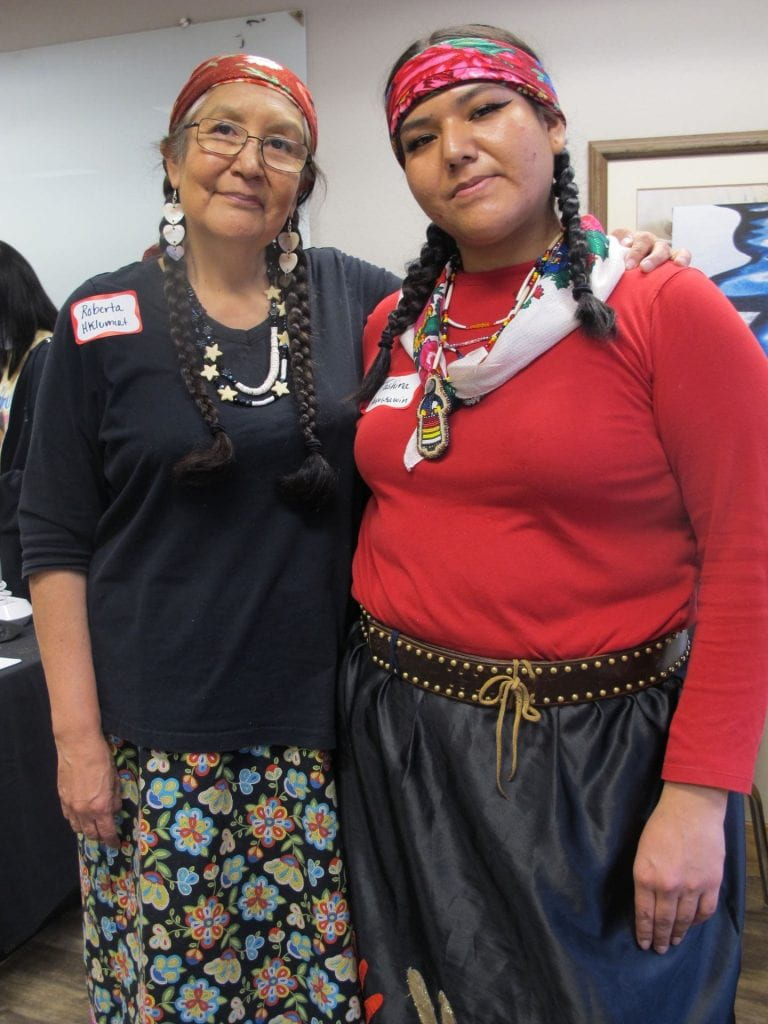
This three-hour beading workshop went an hour over to teach 20 workshop participants the techniques to create a beaded animal charm suitable for a backpack, keyring, or purse. Participants had a choice of several basic designs, or they could use of their own.
We all quickly learned that simpler was better–and easier! Kirk and Eastman brought with them a large variety of beads and showed everyone how to pull off a strand from the larger bunch; the challenge was not to spill beads everywhere.
Next, they showed us how to wax the cotton twine and then pull a threaded needle through the template, thread 6-8 beads, and then use another needle and twine to tack down the beads after every third or fourth one. This was much more challenging than it looked when these master artists demonstrated.
You have to use both hands, hold down the beads with one, and then keep the second needle and twine separate from the first for tacking.
While many of us were frustrated while we beaded the outline of our designs, eventually we caught on and worked more quickly.
Although no one completed her beaded piece, Kirk and Eastman showed us how to finish them at home by gluing the beadwork to a piece of tanned rawhide and attaching a keyring, then beading the edge, and finally cutting off the excess rawhide for a completed beaded keyring.
Besides patiently showing us all how to do this painstaking beading for a small design, Roberta and Tashina also showed off their own artistry with a display of beaded regalia, from dresses and belts to hair ties and more.
Roberta Kirk is a featured artist on the Oregon Folklife Network’s Culture Keepers Roster and Tashina Eastman will soon be listed as well. Kirk has also received many honors including the (Oregon) Governor’s Art Award (2020), the First People’s Fund Community Spirit Award (2020), and Traditional Arts Recovery Program funding (2022) as well as having served several times as a master artist for Oregon’s Traditional Arts Apprenticeship Program.
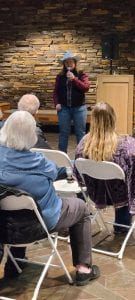
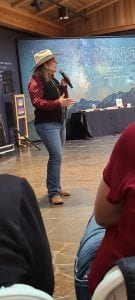
The evening of May 14 featured Western Poet, novelist, and storyteller A.K. Kathy Moss of Prairie City in Grant County. Mentored by Baxter Black and Waddie Mitchell, she is an experienced and lauded cowboy poet and has performed throughout the west including at the Grant County Fair and the National Cowboy Poetry Gathering in Elko, NV. The International Western Music Association named Moss the 2021 Female Poet of the Year. She also won their award for the Cowboy Poetry CD of the Year in both 2020 (for “They Come Prancin’”) and 2019 (for “The Truth”). Moss is also featured on the Oregon Culture Keepers Roster.
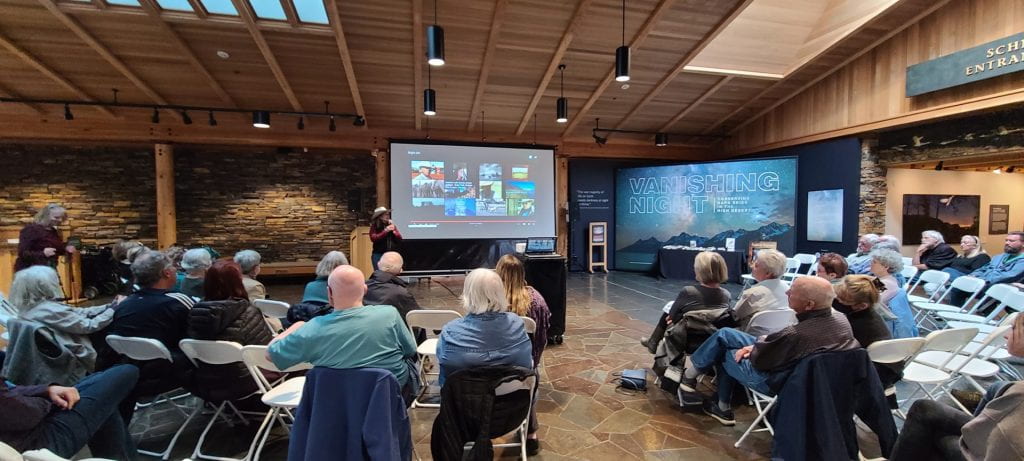
During her performance at the High Desert Museum, Kathy Moss kept an audience of over 60 attendees riveted with her tales and “cowboy” poems about lady buckaroos, ranchers, cows, and horses ubiquitous to eastern Oregon.
Her moving poetry enthralled audience members with stories about horse training and driving cattle. Moss spoke from own knowledge and experience about riding horses, running cattle, doctoring cattle, and a memorable night searching for and finding a newborn calf. Moss brought to life the many characters she has known, especially the women involved in rawhiding, horse shoeing, night-calving, and cowboying. Her keen ear for language augmented with video Long Hard Ride, song sung by Joni Harms – YouTube from Oregon’s ranch country led her audience through the hills and ranges many of us see only from the road.
Moss also brought several copies of her book series and her award-winning CD to sell and sign.
The next day, May 15, High Desert Museum visitors had the pleasure of meeting cowboy hat maker, farrier, and cowboy Lisa Robinson from Lakeview in Lake County.
Robinson brought a few of her finished custom hats, talked about her cowboying work, and did some reshaping and hat-steaming for those who brought their hats.
Robinson, who grew up in a cowboying family in south central Oregon, spent the years from 14-40 cowboying and horse shoeing. About 10 years ago, she learned to make quality, custom-made western hats of 100% beaver for working cowboys. She knew from experience that good hat makers who make custom hats are hard to come by, so she set out to learn how with the goal of eventually retiring from her physically demanding work as a farrier. In early 2014 she apprenticed with two skilled master hat makers, Mike Moore who owns Buckaroo Hatters in Tennessee, and JW Hats in Salt Lake.
As she explained to the audience, she doesn’t use wool, rabbit, or blends because they don’t hold up as well.
Beaver hats keep their shape through wet, snow, cold, and hot sun. They don’t bleed dye, and they don’t shrink. As a working cowboy (she and her husband, Paul Robinson, run their own small ranch as well as run cattle for other ranches), she knows the value and necessity of a well-made, well-fitted hat; she tailors her individuals and has her own special identifying mark—dots on the ribbon band, which, along with the look of her beaver felt hats, she can spot from a distance.
Lisa Robinson’s thriving business, Top Knot Hats, builds custom hats and also reshapes, sizes, or refurbishes old ones with new ribbons, sweatbands, and more. Robinson is also on the Oregon Culture Keepers Roster and is available for talks and demonstrations within a hundred miles of Lakeview.


